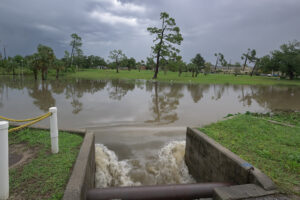3 Claim Considerations for International Travel Exposures
If an employee is injured while working internationally, does your organization know how to respond? Reviewing these details in your domestic and foreign voluntary workers’ compensation policies can help chart the right course of action.
October 8, 2024

Foreign voluntary workers’ compensation coverage can provide similar benefits as domestic workers’ compensation coverage to employees who are injured while working outside the U.S. However, in the event of an injury, organizational stakeholders may be unfamiliar with the coverage or how to handle the claim, leaving an already vulnerable injured worker in a more compromised position.
“The lack of clarity in the majority of workers’ compensation state statutes, coupled with the variety of available foreign voluntary workers’ compensation endorsement wordings, creates a potential gap in coverage for employees traveling overseas,” said Andrew Smith, National Director – Defense Base Act & Multinational Solutions Underwriting.
Here, we outline a few claim considerations for organizations with employees traveling both within and outside the U.S.
1. Understand State Guidelines
Employers should be aware of how their stand-alone foreign voluntary workers’ compensation policy and their domestic workers’ compensation policy would respond to a potential claim. A handful of state statutes define temporary travel; these definitions can range anywhere from 10 consecutive days to two weeks, 90 days, or even 12 months. Most states, however, either do not address extraterritorial length of travel or do not define the term “temporarily” in the statute.
2. Anticipate Needs in Overlapping Coverage
If there are separate carriers on the domestic workers’ compensation and foreign voluntary workers’ compensation programs, extreme care should be taken to ensure the claim is tendered appropriately and timely based on the domestic workers’ compensation statute. Similarly, if there is overlapping coverage between the domestic workers’ compensation and foreign voluntary workers’ compensation policies, this could lead to confusion, causing coverage delays, misapplication of retentions, and/or erosion of goodwill toward the injured worker.
3. Prepare an Appropriate Response Plan
Organizations with employees traveling overseas should ensure their risk management strategies have been appropriately developed to address potential events outside the country. Coverage and services should be purchased to ensure employees have the appropriate support if an injury or crisis occurs outside the U.S. Ensure that both the risk management team and employees are familiar with these coverages and services, how to access them if an event occurs, and how the coverage and services could potentially respond to a particular claim.

























